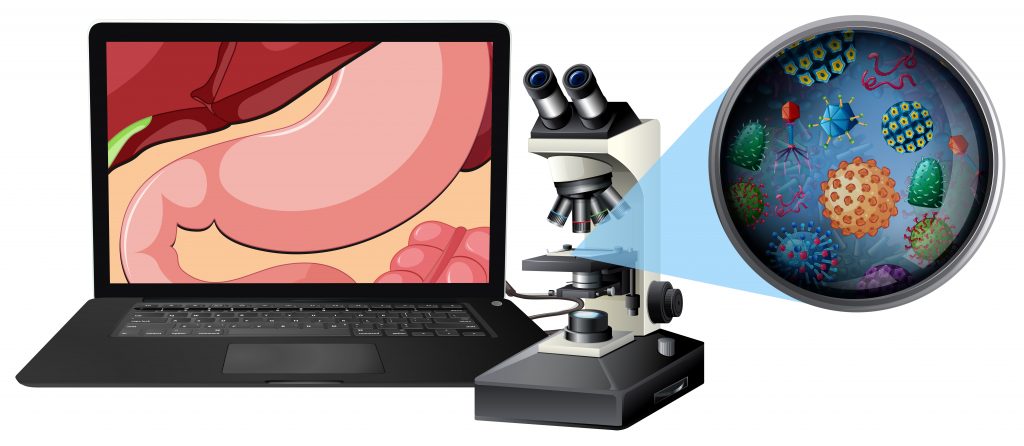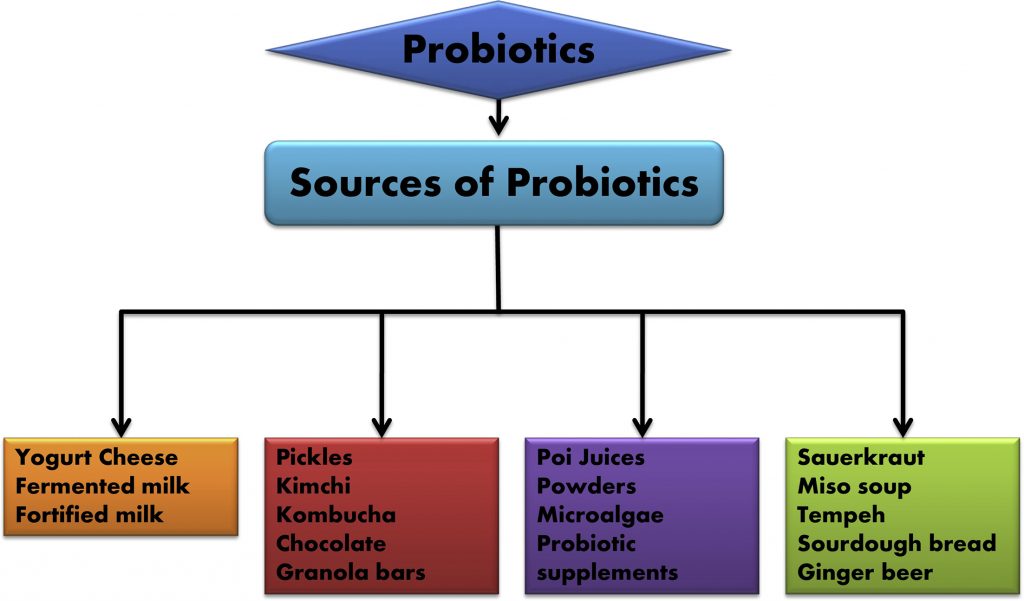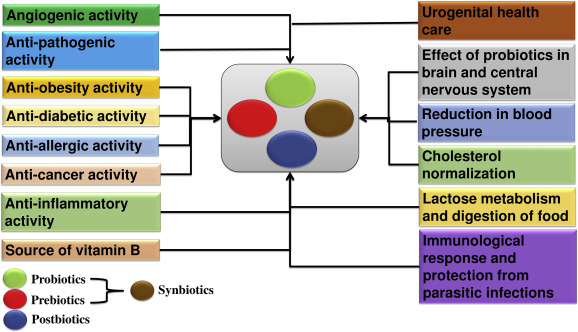Did you know …
Health Benefits of Probiotics, Prebiotics and Synbiotics
Most of the promising results stem from observing the effects of probiotic, prebiotic and synbiotics on our gastrointestinal tract and overall health.
- Probiotics are living organismsthat can have healthy benefits for an individual. The most common microorganisms contained in probiotics are Lactobacillus and Bifidobacterium. These are typically ingested in the form of a supplement or foods such as yogurt, fortified milk, granola, chocolate, pickles and kimchi.
- Prebiotics are dietary substancesthat promote growth of beneficial bacteria over harmful ones. They are foods that feed the probiotics living in the gut. Natural sources are found in common fruits, vegetables, and grains such as oats, bananas, onions, beans, peas, asparagus and honey.
- Synbiotics are simply a combinationof prebiotics and probiotics in a single source. They work together to achieve the same benefit of increasing the healthy bacteria in the gut.
How do probiotics work?
 Probiotics alter gut bacteria and influence health by improving the barrier of the intestine. This helps protect against harmful bacteria and parasites we may ingest. They are also known to have direct bacterial-fighting effects and to aid in overall protection. This works by stimulating, balancing and regulating the immune response.
Probiotics alter gut bacteria and influence health by improving the barrier of the intestine. This helps protect against harmful bacteria and parasites we may ingest. They are also known to have direct bacterial-fighting effects and to aid in overall protection. This works by stimulating, balancing and regulating the immune response.
Probiotics also help regulate brain behavior through two-way communication between the gut and the central nervous system – by signaling neurons in the brain, releasing hormones and influencing the immune response. This communication network is known as the “gut-brain axis”.
Probiotics have also been found to have a positive effect on multiple disease processes, starting with the gastrointestinal tract. More recent research points toward an even more widespread benefit, with the use of probiotics for:
- Risk reduction and treatment of antibiotic associated diarrhea
- Treatment of abdominal pain in Irritable Bowel Syndrome; constipation
- Ulcerative colitis; H. pylori (a cause of gastritis and gastric ulcers)
- Colic in infants.
A few studies have also shown improvement in liver function in adults with fatty liver disease, which has become more apparent and problematic with obesity issues seen in Americans.
Other exciting benefits include anti-inflammatory / anti-allergy activity, with probiotics showing positive effects on eczema, hay fever, and periodontal disease. There also appears to be a positive (although subjective) link for use of probiotics in Attention Deficit Disorder, anxiety and chronic fatigue.
But wait, there’s even more.
Probiotics, through genetic testing and gene sequencing, have also been shown to have anti-diabetic activity, obesity-fighting properties, and cholesterol lowering effects in certain populations. It is a complicated process, but this seems to be related to the ability of certain strains of probiotics to regulate Leptin, a hormone that regulates energy balance and hunger.
Other cardiac and metabolic health effects, presumably related to inflammation, have also been studied. A recent article in the Journal of the American Medical Association linked gut health to not only diabetes, obesity and lipids, but also blood pressure and plaque build-up in the arteries. There is also research showing that probiotics might also play a role in reducing risk of colon cancer.
Much of the evidence for these advancements have been from animal studies. More research will be needed before the relationship of these disease processes in humans with gut health and probiotics can be fully determined.
In people who are generally healthy, there is a good safety record with probiotics. However, though not typically problematic, using probiotics is not without risks. A small study of 30 people found associations, though no direct link, with bloating and brain fogginess. Side effects and risk of infection have been noted in patients who are critically ill, those who have recently had major surgery, and individuals with a weakened immune system. In these groups, caution should be used when considering taking a probiotic.
What are the sources of Probiotics?
The diagrams below are from an article published July 2018 in the Journal of Food and Drug Analysis summarizes probiotic sources and highlights the known and postulated benefits.
References:
Wilkens T, Sequoia J. Probiotics for Gastrointestinal Conditions: A Summary of the Evidence, American Family Physician2017 August; 96(3):170-178
Rout K, Jayanta P, SushantoG, Yooheon P, Han-Seung S, Gitishree D. Benefaction of Probiotics for Human Health: A Review, Journal of Food and Drug Analysis2018 July; 26(3):927-939
Komaroff A. The Micobiome and Risk for Athersclerosis, JAMA2018 June; 319(23):2318-2382
Patel R, DuPont H. New Approaches for Bacteriotherapy: Prebiotics, New Generation Probiotics, and Synbiotics, Clinical Infectious Disease2015 May; 60(Suppl 2): S108-S121
Satish R, Rehmam A, Yu S, Martinez de Andino N. Brain Fogginess, Gas, and Bloating: A Link Between SIBO, Probiotics and Metabolic Acidosis. Clinical and Translational Gastroenterology.2018;9(6)




